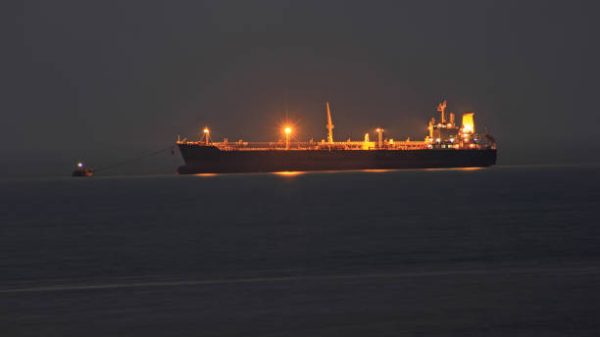Cargo vessels operate at night despite ban

- Update Time : Monday, July 31, 2023
- 63 Time View

Despite government-imposed restrictions, cargo vessels, dredgers, and motorised boats are flouting regulations by continuing to operate at night, leading to frequent, often fatal, accidents.
This defiance of orders reveals a lack of monitoring and enforcement that puts lives at risk.
In a move to enhance safety in the river zone, the Department of Shipping (DoS) previously instituted a ban on these vessels operating from sunset to sunrise. A stern warning accompanied the directive, stating that tougher action would be taken against vessels defying the ban.
However, an observable gap exists between policy and practice as these vessels blatantly continue their night-time operations.
An unfortunate incident on July 16 brought this issue into sharp focus. A water bus was hit by a bulkhead in the Buriganga River near Telghat in Keraniganj, resulting in the loss of four lives and leaving many injured. The river police responded swiftly, arresting six people, including the master of the bulkhead.
The Chairman of the Bangladesh Inland Water Transport Authority (BIWTA), Commodore Arif Ahmed Mostafa, asserted that the restriction remains in effect and that their mobile court is operational around the clock.
“River police and coast guard work to ensure safety on waterways,” he added.
However, the continued movement of vessels after sunset tells a different story.
During a recent visit to Sadarghat and Wiseghat, this correspondent found a significant number of cargo vessels and trawlers plying the Buriganga, with no sign of any authorities or police presence.
Reliable sources informed that around 50 motorised boats or trawlers operate nightly, ferrying people across the Buriganga River, often with passenger loads exceeding their capacity.
It is estimated that over 200 cargo vessels traverse the route from Postogola to Sadarghat via Gabtoli each night, despite the ban. The Department of Shipping reports that 16,980 authorised vessels, including 6,379 authorised bulkheads (sand carriers), are currently operating across the country’s internal routes. While regulations are being openly flouted, an even more concerning issue lurks beneath the surface. Hundreds of illegal bulkheads are operating on the river, largely unmonitored and unchecked.
These unauthorized vessels lack the required fitness certifications and are often steered by unskilled drivers, making their operations alarmingly precarious. Their unchecked presence is noted only when tragedy strikes and the naval authorities are stirred into action.
Furthermore, these bulkheads reportedly lack adequate safety lights, an essential requirement for navigating waterways in low visibility conditions. Laden with sand, most of the bulkheads’ structure is submerged, leaving only their front and rear visible above the waterline, increasing the risk of collisions.
The Department of Shipping admittedly lacks comprehensive data on the number of illegal boats operating across the country, further compounding the problem.
Highlighting the gravity of this issue, Md Imran Uddin, Assistant Professor of the Accident Research Institute (ARI) at Bangladesh University of Engineering, voiced his concern.
“Law enforcers need to take stern action to stop the repetition of such accidents. These bulkheads have design flaws. They are constructed arbitrarily, presenting a significant risk when hitting other vessels,” he said.
He further added that most bulkheads on the river are unregistered. Despite a boat census initiated in 2016 to quantify the number of boats operating in the country, the data remains inconclusive.
On the other hand, Mozammel Haque Chowdhury, Secretary-General of Bangladesh Passenger Welfare Association, underscored the lack of valid documentation for these vessels.
“Without curbing the operation of these illegal vessels, it’s impossible to ensure safety on our waterways,” Chowdhury asserted.
He pointed out the difficulties in distinguishing between registered and unregistered boats, which further exacerbates the situation, increasing accidents and crime and escalating passenger risk.
In discussions with the shipping sector’s owners and labor leaders, it was revealed that these illegal vessels are often operated by influential individuals who allegedly manage to circumvent regulations enforced by naval police, local administration, the BIWTA, and the Department of Shipping.
However, Shahidul Islam Patwari, Secretary-General of Launch Owners Association, expressed optimism that the situation is gradually improving.
“Owners are becoming more aware, and the number of boat registrations is increasing,” he stated, offering a glimmer of hope amid the prevailing challenges.















